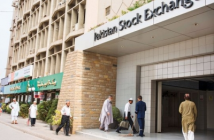By Hargovind Sachdev
Credit Suisse Group AG, once a global financial leader and a national icon, is no more. UBS Group bought this bank for $3.50 billion, less than 93% of the market value. The sale marks the bank’s final fall from grace, succumbing to a crisis that threatened to spread across financial markets. The Swiss bank had a stock market value of CHF 100 billion in 2007, of which CHF 7 billion remained before the takeover. For 166 years, Credit Suisse held a pole position in Switzerland before scandals, legal issues and management upheaval blew away investor confidence. While the deterioration was years in the making, the end came quickly.
The Swiss government regretted that Credit Suisse couldn’t master its difficulties resulting in a loss for the markets, and customers were no longer interested. As one of the world’s 30 systemically important banks, Credit Suisse is the biggest casualty of the financial turmoil triggered by Central Banks as they tighten monetary policy using interest rates as a weapon to rein in inflation.
The massive failure emanates from poor management of interest rate risk by Credit Suisse, resulting in huge losses and an asset-liability mismatch of over $ 50.0 billion, which UBS has bridged after the takeover. The scenario proves that the interest rate hike tool to fight inflation is a multi-edged weapon that dents both banks and customers while cooling inflation.
When the Reserve Bank of India responds to elevated inflation risks by raising its benchmark repo rate, it effectively increases risk-free reserves in the financial system, limiting the money supply available for purchases of riskier assets. Conversely, when the RBI reduces its target interest rate, it effectively increases the money supply available to purchase risk assets. By increasing borrowing costs through enhanced interest rates, the lenders discourage consumers and business spending, especially on commonly financed popular loans like housing, vehicle and capital equipment. The step impacts adversely to more than 250 industries attached to these segments.
Rising interest rates also tend to weigh on asset prices, reversing the wealth effect for individuals and making banks block more funds on the supply side against poor credit offtake on the demand side. The ultra-cautious lending decisions leave unspent cash with banks. Banks invest surplus funds into low-yielding bonds. High-interest rates decrease bond yields. The redemption to dispose of such held-to-maturity bonds results in losses making big holes in bank profits.
Interest rates and inflation move in the same direction. The policymakers require data to estimate future inflation trends, and the interest rates they set take time to affect the economy fully. The regulator will increase rates to bring rising inflation under control. However, slowing economic growth often lowers the inflation rate but impacts bank bottom lines, creates stress in the economy and reduces jobs.
The global economy runs on money, so when the cost of funds in interest rates rises rapidly, growth may slow sharply or even give way to a recession. Whether these consequences mean rates rose too quickly would depend on the particular economic circumstances, including assessing the cost of raising rates more slowly. There is no one-size-fits-all measure of how quick is too quick and no way to know whether policymakers have made optimal tradeoffs between growth and inflation except in hindsight.
In monetary policy, it pays to have good timing. The economy has to be robust enough to handle the increase in borrowing costs due to higher interest rates. If the RBI tightens too quickly, it risks tipping the economy into an unnecessary and deep recession. The interest rate hikes have global consequences, often forcing bank treasuries to make risky investments that are more frequently detrimental to health.
The more extended inflation negatively impacts the economy, bringing a recession, resulting in changes such as slower hiring, increased layoffs, slower industrial production and a stalled housing market. After taking over, UBS decided to fire 30% of the employees of Credit Suisse. The increasing inflation leads to decreasing employment and vice versa. Sharp rises in inflation mean that ordinary citizens pay a higher cost of living, but fixed income decreases their overall purchasing power. The reduced income leaves little cash in hand with the public. As a result, the deposits with banks go down. Banks fight for deposits and offer high-interest rates compromising on profit and viability.
Most recessions have followed interest rate hikes by the Central Banks. Often the ensuing downturn has forced the Regulators to reverse course and start lowering the Repo rate.
RBI has stopped raising repo rates in the latest Monetary Policy guidelines mainly because repeated interest rate hikes impact the economy adversely and are injurious to the health of banks and customers alike.





